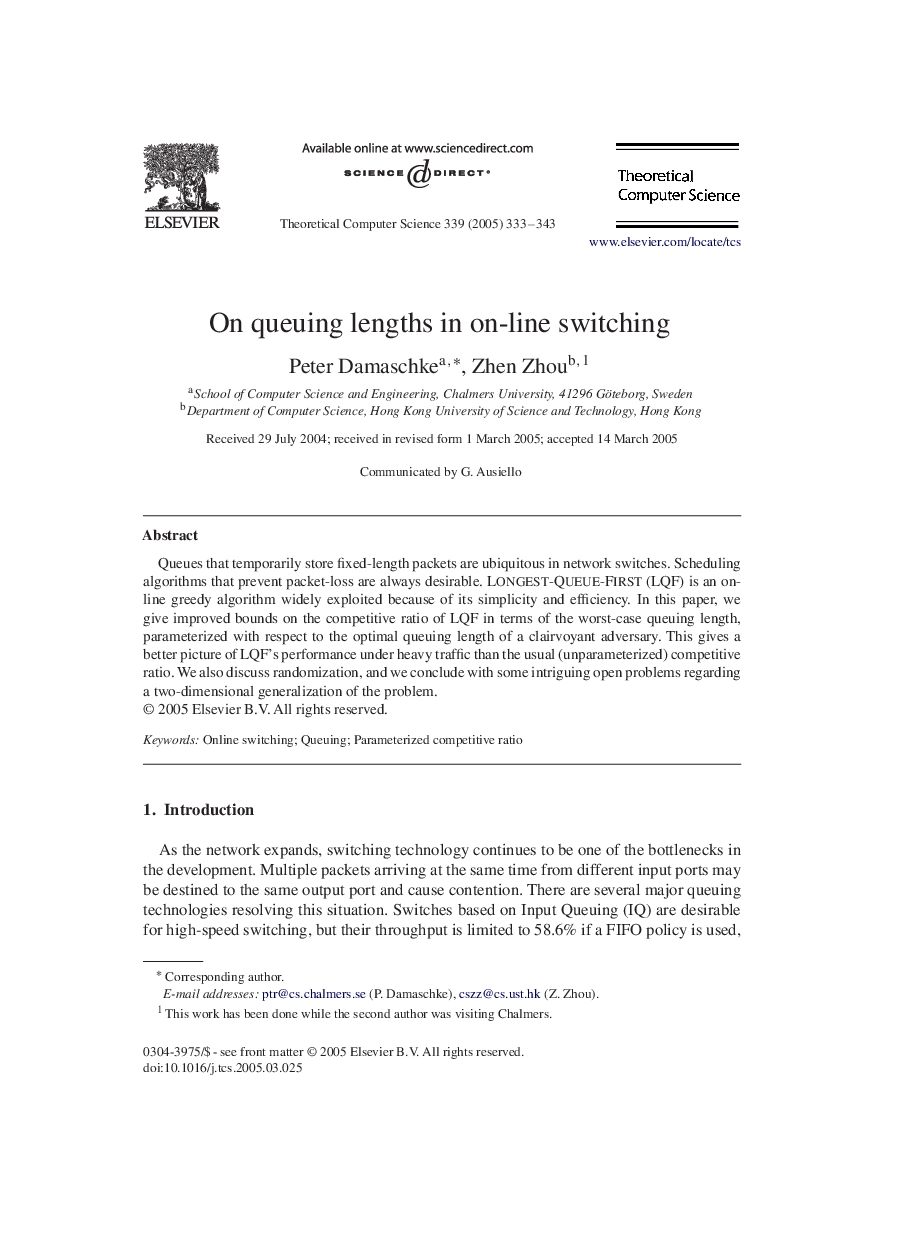| Article ID | Journal | Published Year | Pages | File Type |
|---|---|---|---|---|
| 9657832 | Theoretical Computer Science | 2005 | 11 Pages |
Abstract
Queues that temporarily store fixed-length packets are ubiquitous in network switches. Scheduling algorithms that prevent packet-loss are always desirable. LONGEST-QUEUE-FIRST (LQF) is an on-line greedy algorithm widely exploited because of its simplicity and efficiency. In this paper, we give improved bounds on the competitive ratio of LQF in terms of the worst-case queuing length, parameterized with respect to the optimal queuing length of a clairvoyant adversary. This gives a better picture of LQF's performance under heavy traffic than the usual (unparameterized) competitive ratio. We also discuss randomization, and we conclude with some intriguing open problems regarding a two-dimensional generalization of the problem.
Keywords
Related Topics
Physical Sciences and Engineering
Computer Science
Computational Theory and Mathematics
Authors
Peter Damaschke, Zhen Zhou,
